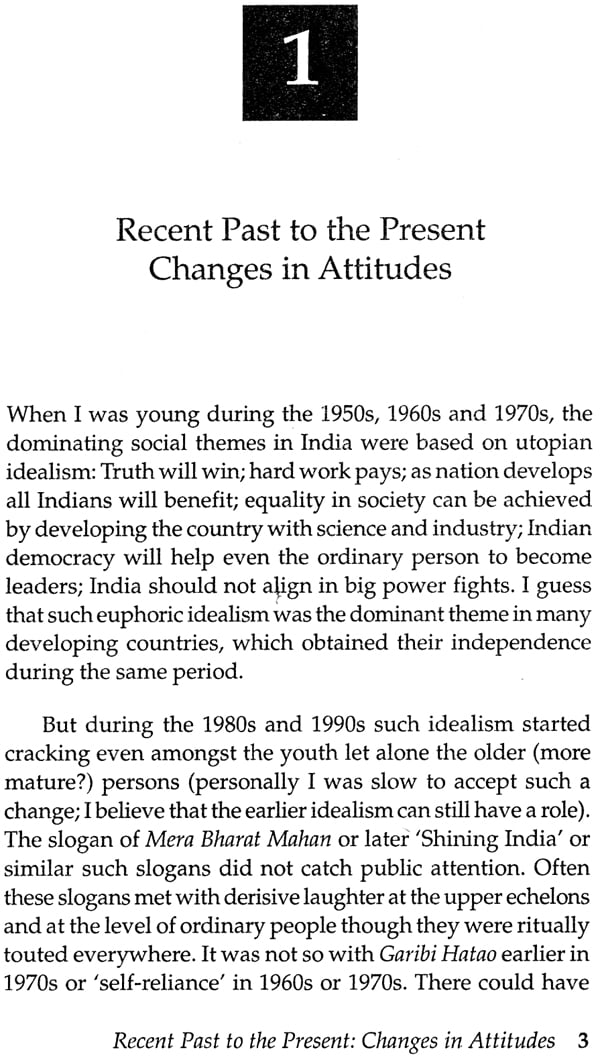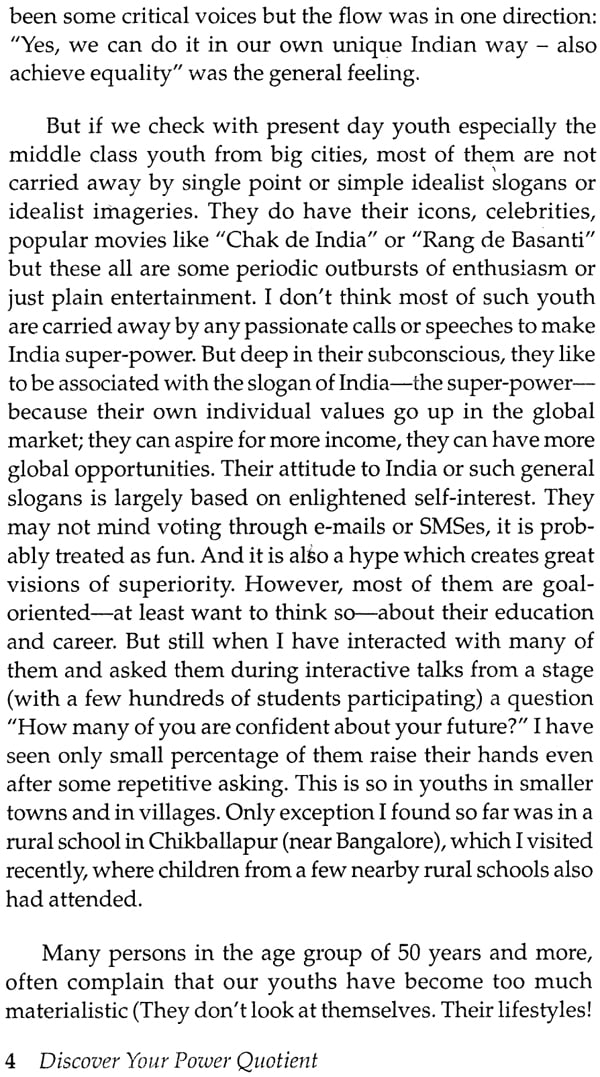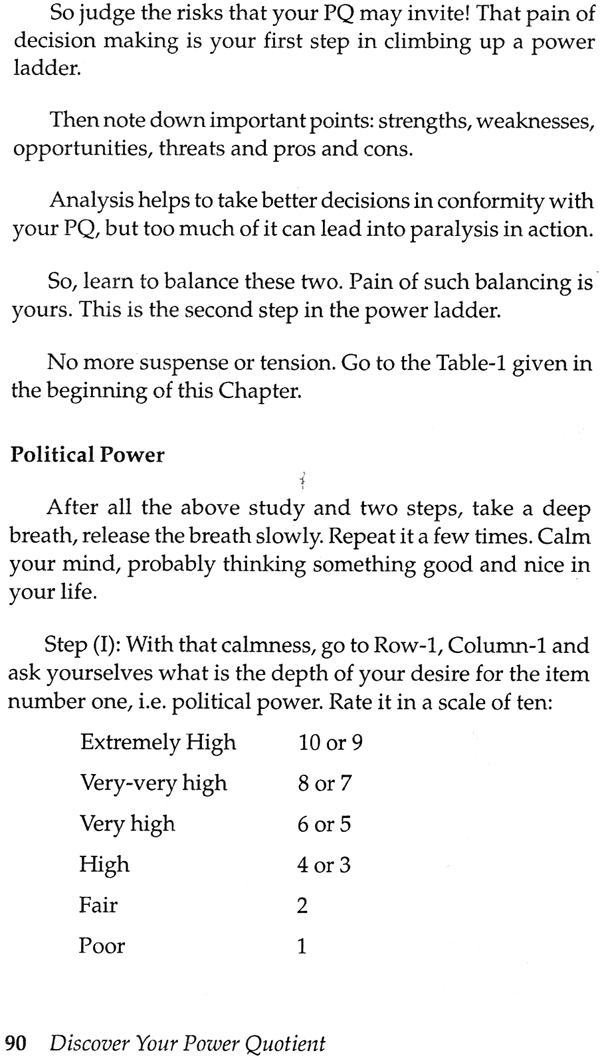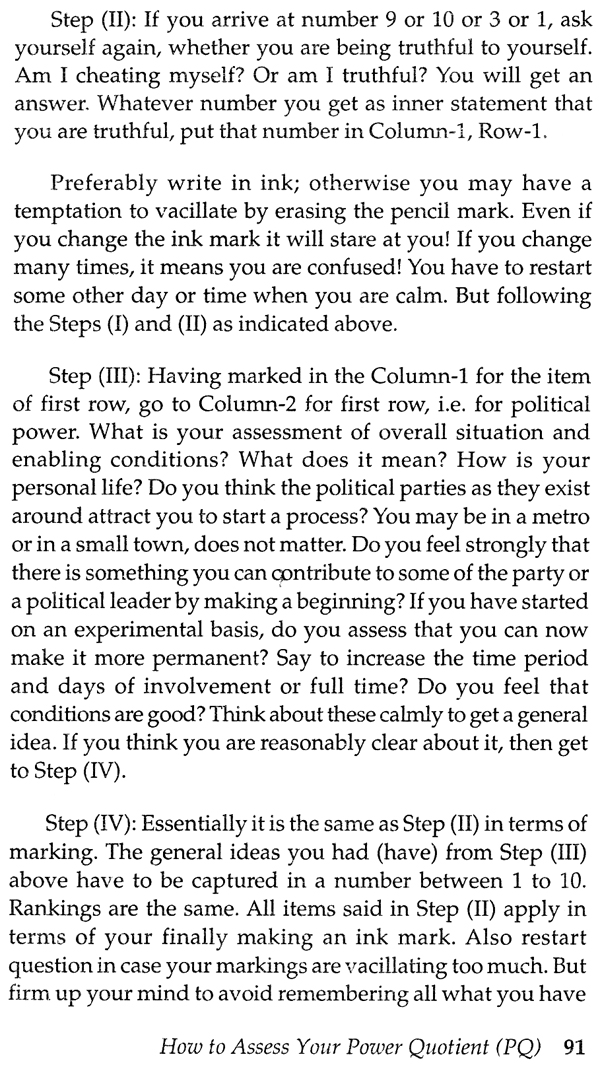
Discover your Power Quotient (A Modern Arthasastra by Y. S. Rajan)
Book Specification
| Item Code: | NAV209 |
| Author: | Y S Rajan |
| Publisher: | Rajpal and Sons |
| Language: | English |
| Edition: | 2011 |
| ISBN: | 9788170288503 |
| Pages: | 100 |
| Cover: | PAPERBACK |
| Other Details | 8.50 X 5.50 inch |
| Weight | 80 gm |
Book Description
Power is the ultimate definition of success in today’s world and everyone wants to have power and be counted amongst the successful people. Whatever your career or sphere of work, the power you wield is a dynamic factor which can be enhanced and increased. The greater the power Quotient (PQ), the more successful you will be. This book will give you an insight into the various types of power – money power, media power, political power, emotional power and several others – and how you can increase you PQ and see your career graph soar.
The author, YS Rajan is Principal Adviser to the Confederation of Indian industry and has a proven track record of excellence as a scientist, technologist, administrator, organisation builder, thought leader, poet and author. Earlier he was the Scientific Secretary to Indian Space Research Organisation and continues to be an important expert on space and scientific matters. He has great faith in the Indian youth and believes that they will be the driving force in making India a developed nation.
This book has been written after a lot of careful thought. The book was in "my mind" for several years and crystallized during 2008. The final shape, after several iterations, took place during October 2008. The publication comes after the momentous general election to the Lok Sabha and a few state assemblies (2009). In many ways the election is the reflection of people’s angst and aspirations, and their dreams and desires. People allow for a lot of leeway to the politicians (those on the top of the power—a point hierarchy of Indian society) but there is a self-limiting brake put on them beyond a point. That point is difficult to determine a priori. It is clear that all the predictions by electoral pundits and media hypes, have gone wrong consistently during 2004, 2009 and also in other major elections in between.
Does it mean that the power quotient (PQ) of people in India has changed dramatically? The answer is an emphatic "No!" Dynasties remain and in fact, they have spread to every party and every group. It is now accepted as natural. Money power has also played a major role. But its dependence on politics was remarkably demonstrated by the explosive shooting up of the Sensex after the 2009 election. Though the Election Commission did a remarkable job by formulating certain rules and guidelines to check the entrance of the tainted people in politics, only a naive person can say that crime power did not play a role, for all parties. Many eminent achievers who stood as independents were trounced! Media continued doing various forms of influence peddling though exit polls were banned by the Election Commission. While their overall predictions were wrong, in a number of cases, media could influence the course of events; it showed its power.
The above recapitulations are done only to emphasise the fact that what is written in this book, is quite relevant and reflective of the present scenario. Yes, the Indian power structure as it stands now, has evolved over many centuries and adapted itself to the new processes of constitutional democracy, modern administrative and business systems. But to claim that we have achieved, equality and equity, will only be cheating ourselves. Statements such as "Any Indian boy or girl should aspire to become big and powerful; if they dream, or make a firm resolve to achieve or just work hard to realize the goal of becoming successful and powerful" are only meant to deceive a vast majority of ordinary people of adults, if they are not tempered with identification of certain harsh realities along with specific suggestions which can help to progress even amidst these difficult situations.
I still stand for ideals, scientific, rational thinking, ethics, morals and an inclusiveness which extend beyond humanism to everything in nature, and try to stand by these principles to the best extent possible in my private and public life. But I have come to realize for the past many years, say Over one and half decade or more, that it will not be correct to pass them on in an unmixed form or without caveats to the younger generation. Of course, they will discover the untenability or even non-existence of many clichéd "imaginary" realities of ideal life. But many of them may be seriously hurt in the process, often irreversibly.
I continuously learn from interacting with people, talking and listening to them, observing them and empathizing with them. I travel extensively to all parts of India. I realize that there are many persons (especially the younger ones) who do not want to accept the possibility of tempering themselves with a middle path even if it were to be discovered by themselves. They desire to be powerful and influential. They have sharp PQ. Perhaps it is a part of the natural wired instinct derived over millions of years of evolution from amoeba to the current form.
A quotation from evolutionary theorists E.O. Wilson and David Sloan Wilson will be worth noting:
"Selfishness beats altruism within groups. Altruistic groups beat selfish groups"
One of the powerful hymn from the Atharvaveda says:
"Bhuyema Sharadahshadam"
"May we retain our prestige and influence for hundred years" (4966, Atharvaveda, LX VIII)
The desire to be powerful and influential is also considered a rightful part of the prayer.
**Contents and Sample Pages**











